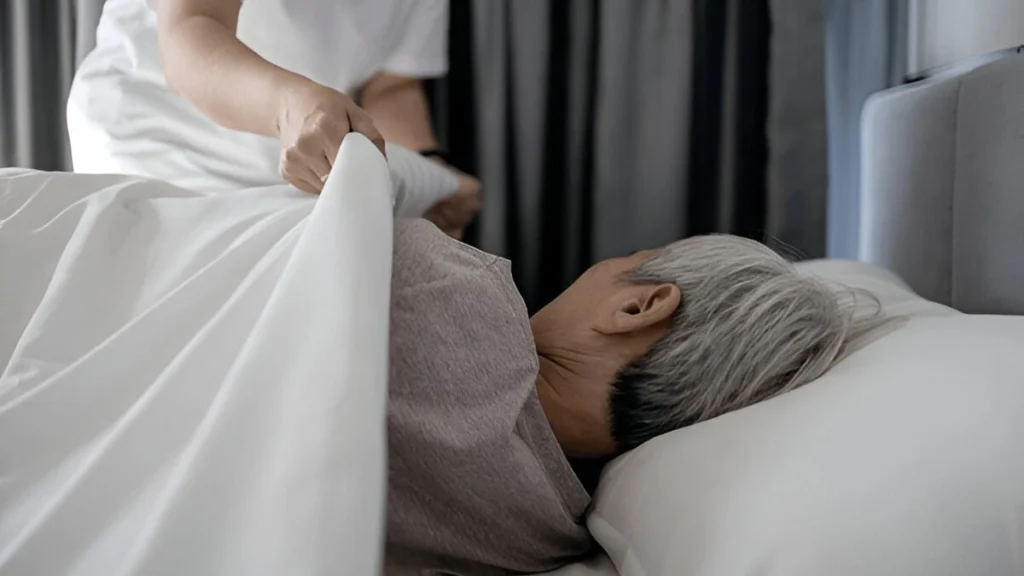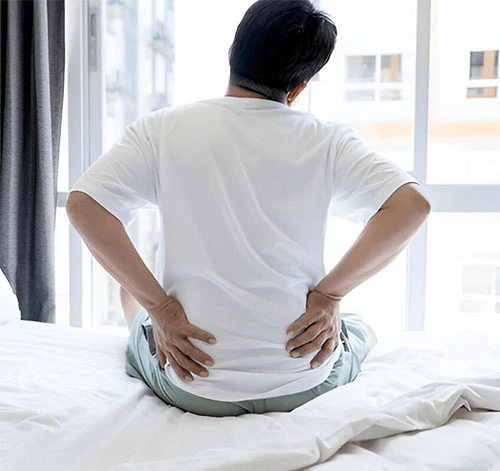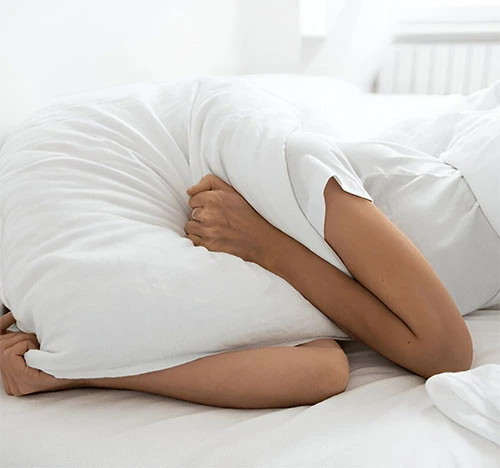
How Sleep Recovery Enhances recovery from medical procedures
After any illness or injury, we often focus on medication and therapy, but one essential element of recovery is frequently overlooked: sleep. Quality sleep is crucial for the body to repair itself, enhance the immune system, and stabilize mood. It reduces inflammation, regenerates tissues, and maintains enthusiasm. So, the next time you’re under any medical procedures, remember that a good night’s sleep is essential in your healing journey.
Table of Contents
ToggleThe Significance of Sleep for Healing
Sleep is essential for restoring the body, promoting tissue repair, and reducing the risk of complications after surgery or other medical treatments. Sleep allows wounds to heal fast, reduces inflammation, and also helps with every physical or mental issue.
Below are various issues that proper sleep needs to get better: Find out if you are one of those:
- Post-surgery recovery: When recovering from surgery, an adequate amount of sleep is significant as it helps in faster recovery, less pain, and reduced chances of infections.
- Helps boost immunity: Your immunity fights infections and reduces inflammation. While asleep, your inner organs relax and work at a low pace, which helps enhance immunity and boost energy.
- Rest after exercise or workout: After a heavy workout or exercise session, having a peaceful nap helps refresh the mind and ease muscle pain.
- Heals wounds or injury: Sleeping helps improve communication between cells and the nervous system, which leads to faster cell repair and relatively less pain activity.
The Role of Sleep Study
A sleep study, also known as polysomnography, is a painless test done by a doctor to diagnose and treat sleep disorders. It varies for a range of stages of sleep, from light to deep. Sleep study plays a crucial role in diagnosing sleep disorders. It monitors various body functions, such as brain waves, heart rate, and breathing patterns, during sleep. This helps doctors identify conditions like sleep apnea, insomnia, restless leg syndrome, and narcolepsy. A sleep study can improve a patient’s overall health and quality of sleep by correctly diagnosing sleep disorders and establishing the framework for effective treatment plans.

The Connection Between Sleep and Recovery
Your body undergoes many changes when you fall asleep. Many phenomena occur inside your body, which is primarily responsible for recovery from most illnesses and injuries.
Scientific benefits of sleeping well.
When you’re asleep, your heart rate and blood pressure drop as your parasympathetic system takes control of your body. Breathing rate falls and body temperature drops, which all help in relaxing inner muscles and organs, and they start healing from medical procedures. Sleeping also leads to a hormone released by the body that helps in repairing cells and controlling your energy use.
What happens if you have poor sleep?
While there are many benefits of having proper sleep, many people still barely sleep; they do not think it is necessary to have a sleep routine, but let me burst that bubble. There are so many negative effects of not having proper sleep and even chances of mental diseases.
If you have any issues in common with the list below, then hurry and consult a doctor:
- Increased inflammation: poor sleep can cause an increase in inflammation, which can slow down the healing process and increase pain in your body.
- Symptoms of chronic diseases: sleeping less than necessary can increase the risk of developing many chronic diseases such as diabetes, stroke, kidney diseases, etc.
- Mental health diseases: Poor sleep is the main cause of mental health issues like anxiety, depression, mood swings, and dementia.
- Decrease in fertility rate: poor sleep can decrease libido, which lowers fertility and hence makes it harder to conceive.
- Weakened immune system: less sleep causes the immune system to work more than necessary and get no time to energize itself.
Types of Sleep Disorder
There are more than 80 types of sleep disorders that critically affect how you sleep. Here’s a list of some of the most well-known sleep disorders:
- Insomnia: It is the most common sleep disorder. Patients suffering from insomnia often feel difficulty falling asleep or getting quality sleep.
- Sleep apnea: It is a sleep disorder that causes your breathing to slow down or stop and start while sleeping. There are two types of sleep apnea:
i) Central sleep apnea: The most common type, which happens when the muscles in your throat relax and obstruct your airway. Changes in hormone levels, obesity, or huge tonsils can all contribute to this.
ii) Obstructive sleep apnea: it occurs when the proper breathing signals are not sent by your brain. Conditions that impact how your brain regulates your airway and chest muscles may be the cause of this.
- Restless leg syndrome: It is a tingling or crawling sensation in your legs that makes you want to move them. Factors like iron deficiency, use of alcohol, and pregnancy can be the reason for it.
- Hypersomnia: It’s the condition in which patients feel tired and fall asleep easily during the daytime despite having proper nighttime sleep. Medications, infections, substance abuse, or medical conditions can be some of the causes.
Sleep paralysis: It is a temporary inability to move or speak while falling asleep or waking up. It may happen due to certain medical conditions like PTSD or bipolar disorder; it can also happen from medications for ADHD, etc.

How to enhance sleep to boost recovery from medical procedures?
Sleep is a crucial element for the healing process, and many times it gets hard to sleep if you are going through medical procedures or any injury.
The points below will help you with sleep recovery to boost your healing:
- Calm environment: To sleep well, you must make sure that there is a calm environment.
- Meditation: If you have trouble sleeping, try exercise or meditation that will help you relax your muscles and improve sleep.
- Comfortable mattress: The most important factor for good sleep is a comfortable and soft mattress.
- How to choose the right mattress:
- It should be soft and fluffy.
- Use soft cotton pillows and warm bedding to relax your body.
- Choose a mattress with supports for pressure points.
- There must be help for spinal alignments.
- If you are sleeping with a partner, then the mattress should be effective with motion isolation.
- Use of medications: If you are suffering from a sleep disorder, then you should consult your doctor and take sleep medication prescribed by your doctor only.
Conclusion
Sleep is a crucial part of the healing process from any medical procedure. Sleep is important as it helps in muscle recovery and even affects hormone secretion. Proper sleep reduces the risk of infection and inflammation and helps the body respond efficiently to vaccines.
However, lack of sleep can hinder the body’s ability to repair issues, reduce pain, and bolster immune defenses. Therefore, one should always prioritize sleep for better mental and physical health and engage in activities that put mind and body to rest so that one can have a good sleep.
FAQs
Q1: How does sleep promote recovery?
Ans. Sleep promotes recovery by lowering cortisol levels; sleep helps hormones rebuild injured tissues and boost inner healing.
Q2: How does sleep help in recovery from surgery?
Ans. A deep sleep helps to support tissue generation. It is associated with increased levels of hormones, which is important for recovery from surgery.
Q3: How many hours of sleep are needed for recovery?
Ans. Generally, 8 hours of sleep is advised for most individuals, but for someone in athletics or physical therapy, at least 9-10 hours of sleep is necessary for recovery and relief of pain.
